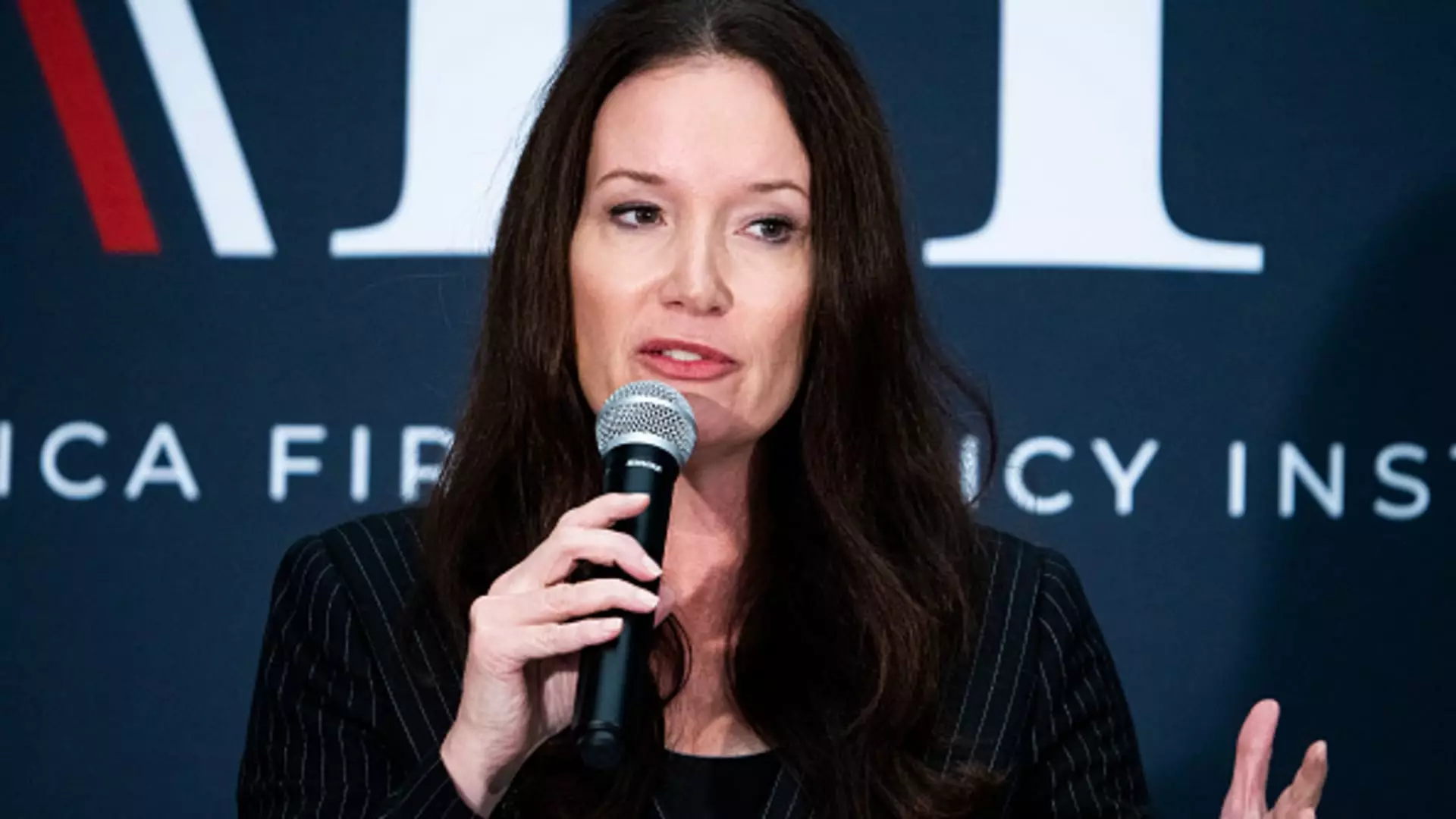President-elect Donald Trump’s selection of Brooke Rollins, the president of the America First Policy Institute, as his nominee for Secretary of Agriculture has generated considerable attention. Trump’s declaration that Rollins will spearhead efforts to safeguard American farmers suggests that the administration intends to prioritize agriculture as a fundamental component of its economic strategy. With a focus on protecting the backbone of the American economy, Rollins’s proposed leadership is framed against a backdrop of significant challenges and opportunities in the agricultural sector.
If confirmed by the Senate, Rollins will lead an extensive agency with a workforce of approximately 100,000 employees spread across numerous offices nationwide. The Department of Agriculture (USDA) plays a crucial role, overseeing a multitude of critical functions including farm aid programs, nutrition initiatives, and food safety regulations. The agency’s expansive budget of $437.2 billion in 2024 reflects its centrality in not just the agricultural arena, but also the broader economic landscape, influencing both urban and rural populations alike. The implications of her policies will likely resonate through American households, affecting everything from dietary standards to food prices.
As agriculture secretary, Rollins will have the daunting task of navigating complex issues that intertwine agriculture, trade, and environmental policies. For instance, her guidance will be vital in the upcoming renegotiation of the U.S.-Mexico-Canada Agreement (USMCA), particularly in light of existing tensions regarding genetically modified organisms and import restrictions. The stakes are high as these negotiations could profoundly impact American farmers and the overarching agricultural economy. Furthermore, her role might extend to shaping the administration’s approach to clean fuel tax credits, potentially affecting the burgeoning sectors of biofuels and sustainable aviation fuels.
Rollins’s association with the America First Policy Institute, a think tank aligned with right-leaning ideologies, indicates a potentially transformative approach to agricultural policy under her leadership. Her previous experience as chair of the Domestic Policy Council during Trump’s initial term provides her with a strong insight into the administration’s overall policy objectives. This background suggests that her tenure may feature an emphasis on redefining agricultural strategies to align with broader nationalist economic philosophies, including a focus on food self-sufficiency.
Moreover, Trump’s assertion that Rollins is committed to revitalizing small towns that depend heavily on agriculture indicates a focus on rural development and support for local economies. Should she succeed in her role, her policies could empower farmers and agribusinesses, yet they may also evoke scrutiny, especially from those concerned about the sustainability and ethical implications of agricultural practices.
The nomination of Brooke Rollins as Secretary of Agriculture signals a potentially impactful shift in American agricultural policy. Her leadership could lead to sweeping changes in how the USDA addresses key issues, but the actual outcomes will depend significantly on collaboration with other sectors and responsiveness to both domestic and international pressures. The agricultural community, policymakers, and consumers alike will be watching closely as her policies unfold in the coming months.


Leave a Reply